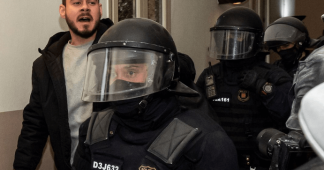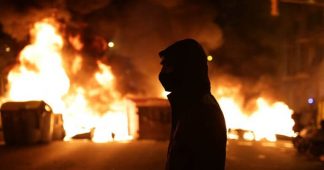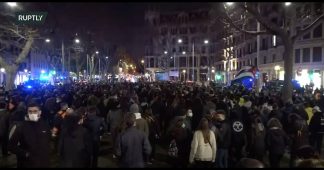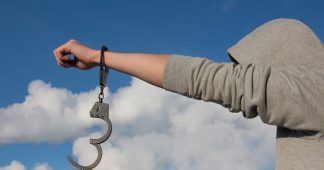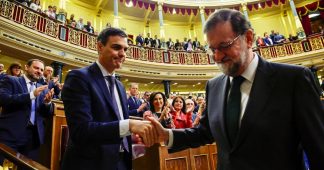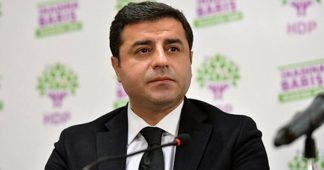“Laws need to be changed” says Denmark-based organization which advocates for artistic freedom
20 February 2021
Freemuse, an independent international organization advocating for freedom of artistic expression and cultural diversity, has condemned the Spanish government for the imprisonment of Catalan rapper Pablo Hasél.
“We certainly have been very disappointed with the Spanish government’s moves on the Pablo Hasél case,” Srirak Plipat, director of Freemuse, told Catalan News in an interview on Tuesday.
Disappointed, and surprised, Plipat says, given that, in January 2020, Spain accepted a recommendation from the UN Human Rights Council (Article 150.84 in this document) stating that it would “guarantee freedom of expression and opinion by revising the Criminal Code to ensure that its crimes are in line with internationally recognized definitions.”
Pablo Hasél’s jailing represents “the opposite,” to Plipat, “a clear disappointment and a direction that we didn’t expect at all.”
The Catalan rapper was sentenced to two years and nine months behind bars for two separate cases relating to the content of some of his songs and tweets as they were deemed to be “glorification of terrorism” as well as slandering the crown and Spanish law enforcement.
Freemuse say that governments can restrict freedom of expression, but that it has to be necessary and proportional under international human rights law. In Hasél’s case, Plipat argues, “the act itself does not justify or pass the necessity and proportionality test at all.”
‘Laws need to be changed’
The Spanish government may consider a presidential pardon for Hasél, something that Plipat would welcome, but what is really required is a more permanent solution, he says.
“I think the presidential pardon would be a very positive step for Spain… but having that done is not enough. Laws need to be changed.”
Plipat also hit out at the prison sentences of up to three years that can be handed down for “glorifying terrorism” or “humiliating the victims of terrorism” under Spanish law.
“These laws are inconsistent with international European human rights standards,” the Freemuse director claims.
Powerholders subject to criticism
Based on international human rights law, public figures – the government, the monarchy, the military and all of those who hold power – are subject to scrutiny by the public, Plipat explains, “so proposing or having a law that additionally protects them is inconsistent with international standards, human right standards or democratic principles.”
“By having a law to protect, we have to make sure that these laws do not restrict freedom of expression.”
On the other hand, research by Freemuse has found that “artists with minority backgrounds have been targeted disproportionally on the grounds of counter-terrorism measures.”
“There is clearly an unbalanced level of protection under Spanish law at the moment,” Pilpat says.
Freedom of expression limits
Freedom of speech and expression for Pilpat means allowing room for voices that you may not necessarily agree with. “Everyone should have the right to express their opinions including joining protests and making their points heard.”
Where groups have a tendency of “inciting violence,” Pilpat accepts that “extra precautions” are necessary, but, he says, “we have to be tolerant,” and argues that silencing groups can force them underground and cause “the level of violence to increase, because they do not have a channel to share their views.”
Based in Copenhagen, Denmark, Freemuse is known for its annual flagship report, The State of Artistic Freedom, widely referenced by governments, UN officials, academia and key actors in the fields of culture and art.
Published at www.catalannews.com
Also read
How a rapper’s arrest in Spain sparked riots and fierce debate about freedom of expression Access to the comments
Spain risks more riots as free speech crackdown and rapper’s jailing reveal a country still struggling to escape Franco’s legacy
